- February 12, 2025
- Amanda Soh
Building a hybrid rocket, using satellite tech, research, operational work at the airport, to building fiber optic transmitters!
MISTI students majoring in aeronautics and astronautics (course 16) interned and researched abroad in five countries. Take a look into what they were up to professionally over the summer of 2024!
Brazil
Frederick Ajisafe, a grad student, interned at The Instituto Municipal de Urbanismo Pereira Passos (IPP) in Rio de Janeiro.
Research assistant in the Space Enabled research group
2024 Mathworks Fellow
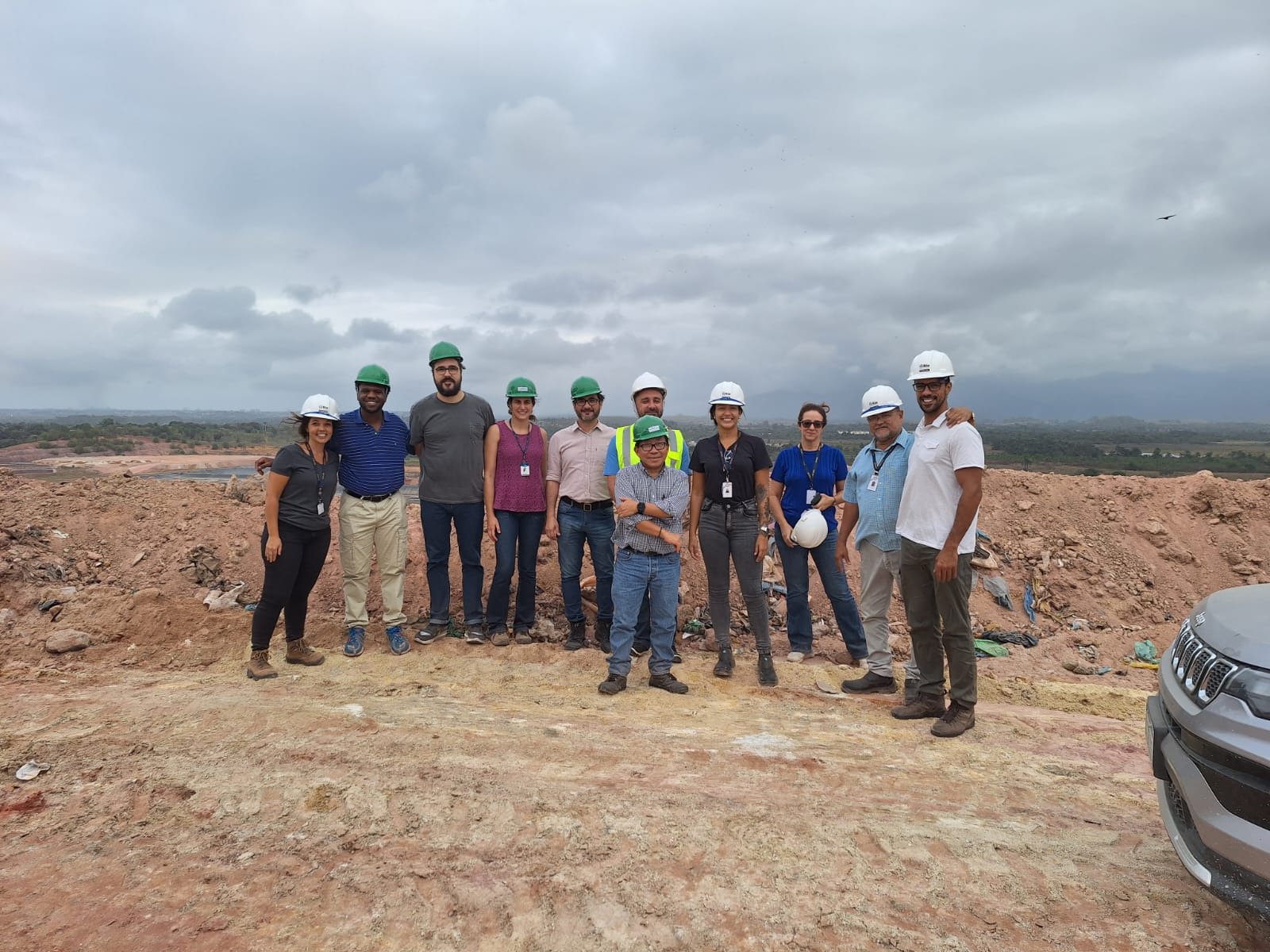 |  |
Overview host organization, about internship project, and contributions made.
The Instituto Municipal de Urbanismo Pereira Passos (IPP) serves to advise the city government of Rio de Janeiro in public policy, by gathering and analyzing data. This results in the development of maps, socioeconomic indicators, cartographic data, and information systems, all accessible to the public through its online portal. To support the development of environmental policies related to climate change, one of these tasks is to create an annual inventory of greenhouse gases produced by the city. The project itself is about the use of novel satellite technology to detect emissions of the greenhouse gas methane, which is both more potent and less long-lasting in the atmosphere than carbon dioxide. We investigated one of these satellite operators, GHGSat, to see what kind of data they would be able to gather over Rio de Janeiro’s primary solid waste landfill, and how that could supplement the inventory IPP already compiles.
How did you use your MIT skills, and what new skills did you develop?
My MIT coursework in systems engineering and previous research experiences in data analysis helped me understand everything involved in the production and monitoring of methane as an interconnected sociotechnical system, as well as to make sense of the satellite data itself. One of the challenges was in understanding how to explain some of the day-to-day variation in the satellite-derived methane readings. By analyzing the impact of the possible sources of variation, we were able to generate viable hypotheses. How did the experience support your academic/career goals? We compared satellite data with inventory estimates over Rio de Janeiro’s primary landfill to see how the former could supplement the latter. This ties into my thesis research using systems engineering and satellite remote sensing for the development of informed public policy.
Will you continue any work with your advisor/host in the future? Any patents, publications, or presentations resulting from your internship?
This project has had several results, some already realized, and others still in the near future. Although I had hoped to finish my master’s thesis document in August for the September degree list, this goal proved unrealistic in the end. Instead, I will be finishing it this January for a February graduation. In the course of my work on site, I gave several informal presentations about the nature of the project to different stakeholders, and developed relationships with new groups that I will continue to work with. In one presentation, I spoke for about an hour and a half to a group of high schoolers about my current and past work in both engineering and in musical study and performance. This “impromptu GTL” contributed to a program at the local university to spark interest in STEM. My research host had been working on this topic with me before my travel, and we will continue working afterwards. Later this year, I plan to attend two conferences to present the findings of the work developed before and during my travel. In preparation for future collaborations and visits, I plan to continue learning Portuguese as well, as that proved to be a significant personal barrier for me this time.
What's your primary motivation for choosing your internship destination this summer?
The research project that I have been working on for the past year as a graduate student is tied directly to not only Rio de Janeiro, but to the host organization as well. For this reason, I was well aware of my research location and goals from the beginning. My role was less like an intern per se, and more like a visiting researcher. Reflect on how this experience impacted your future personal goals. This experience strengthened my recognition of how little I know about the world, and how much there still is to explore. In the end, I visited only a fraction of the places and did only a fraction of the things I knew I wanted to get to, and I was continually learning about new activities while I was there. Relatedly, I think we tend to write off so-called “developing countries” as inherently less advanced or lacking in ideas, but many of the projects I saw in my time there involved just as much or more innovation than I may see in the US. It seems to me that not undergoing the same industrialization and de-industrialization process as the “developed countries” presents an opportunity to entrench more sustainable modes of development instead.
Hong Kong
Jolie Duquene '27 interned at the Hong Kong University of Science & Technology, Computer Science Department.
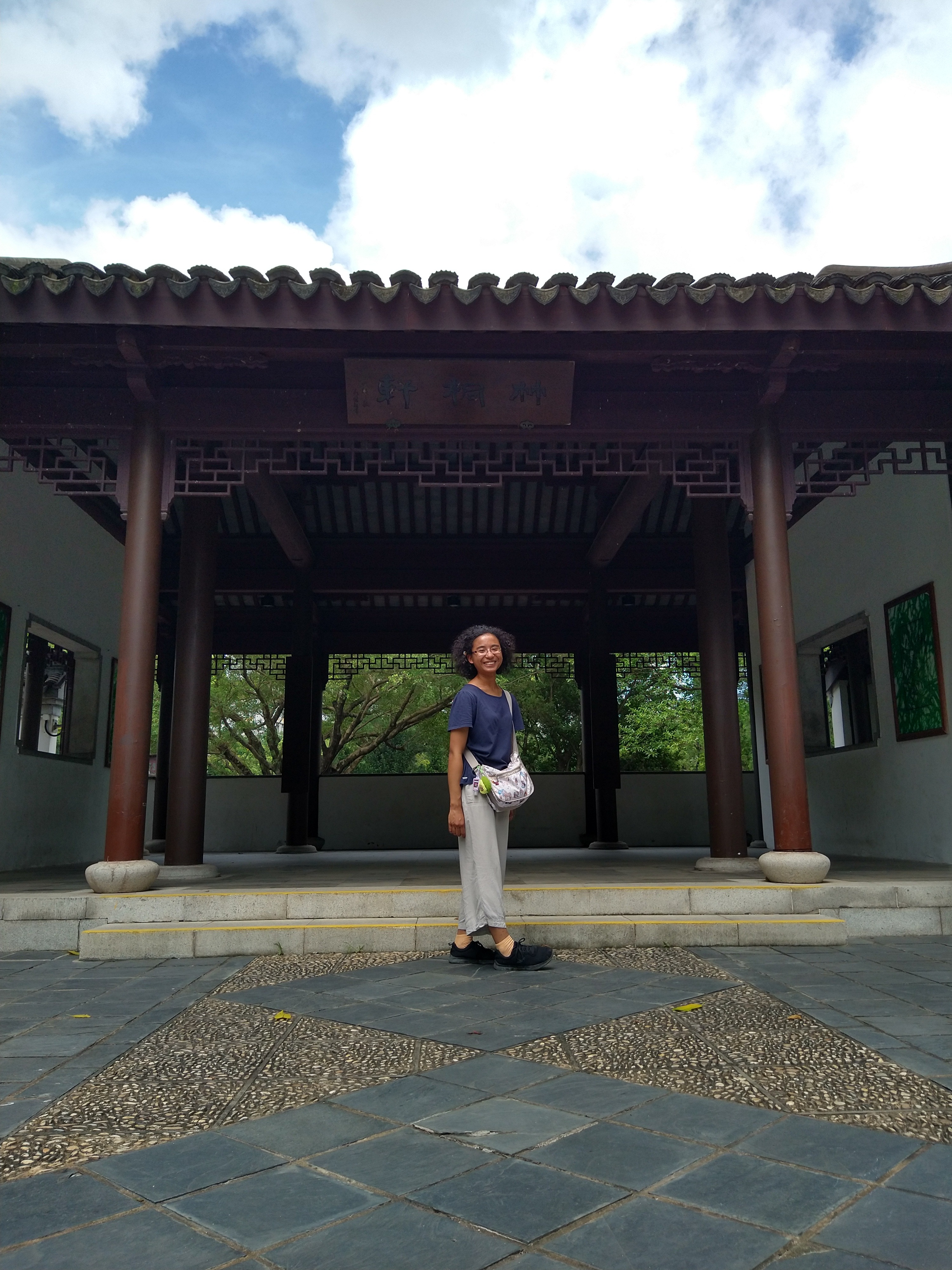 | 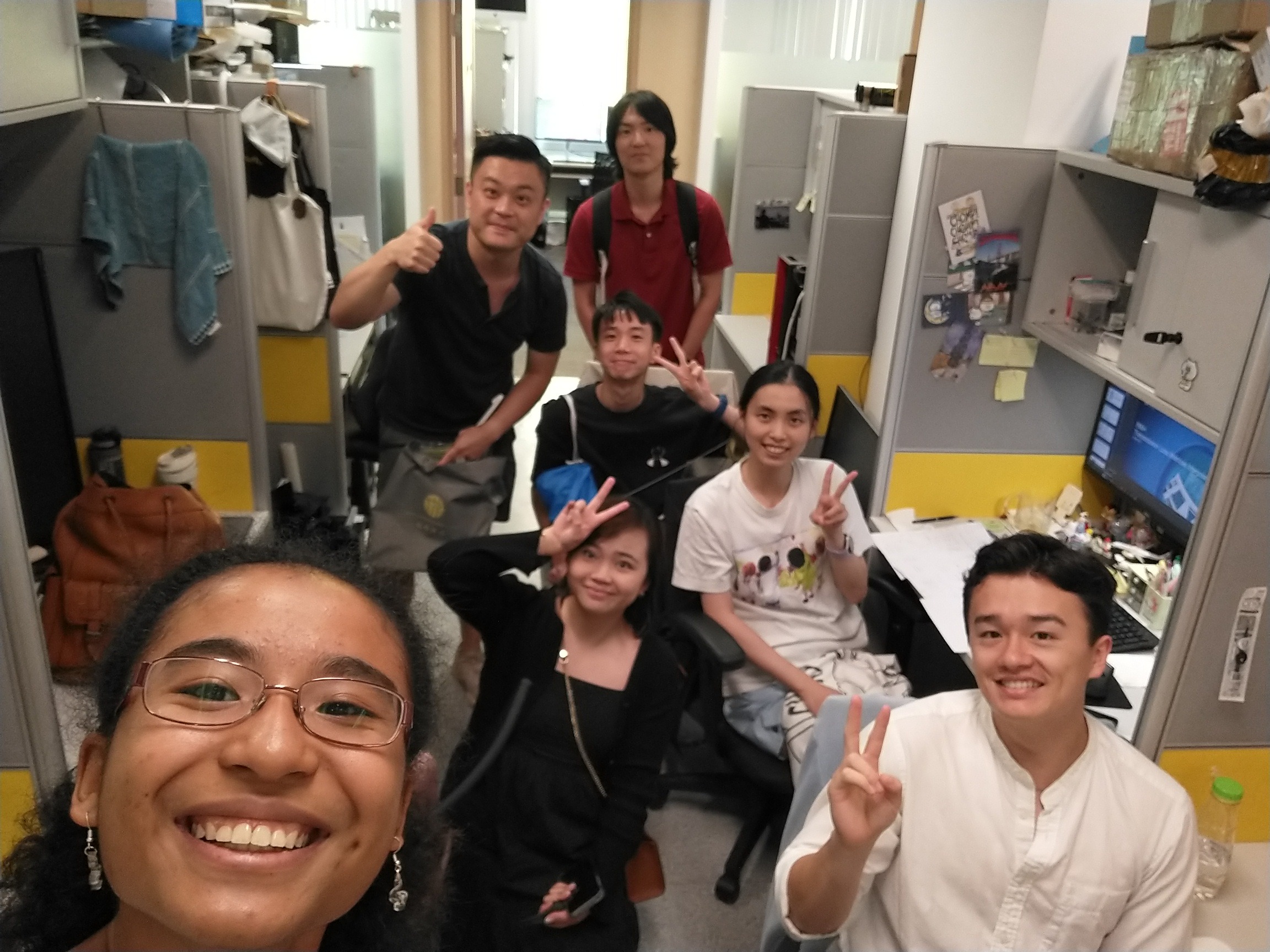 |
Overview of host organization, about internship project, and contributions made.
The Hong Kong University of Science and Technology (HKUST) is a 4-year university in Clearwater Bay (Eastern side of Hong Kong, in the mountains). They have a high focus on research and also welcome many undergraduate summer exchange students each year. My internship project analyzed the noise generated by the S809 airfoil computationally. Many of the tools I used for this project were either open source (ex. OpenFOAM Computational Fluid Dynamics software) or developed by the graduate student I worked under (ex. the initial code for creating a mesh, code for analysis). Beyond the tools, I did all the work for creating the mesh, setting up the simulation, and analyzing the results, with some guidance or tips from my graduate student. I also wrote code for some of the analysis I did.
How did you use your MIT skills, and what new skills did you develop?
I used my MIT skills to communicate and collaborate with my graduate student. While the project was mine, I was doing something similar to what he had done before, and he hopes to use some of my results in his future work. Our collaboration helped us understand the results and also determine what other analyses I should do. During my internship, I learned a lot about setting up a computational fluid dynamics (CFD) simulation, especially when using custom-made tools. For example, while it seemed like the first mesh I made might be usable, I learned why it wasn't a suitable mesh as well as how I could improve it. While I had used OpenFOAM CFD before, I didn't fully understand how to use it. This summer, I learned about many more of OpenFOAM's capabilities and what to pay attention to when setting up a simulation. I also learned a lot about how to post-process a CFD simulation, including analyzing the aerodynamics and the acoustics and the differences between the two. One of the most applicable things I learned is the method of writing a paper using a power point: first, by determining the story/flow I want to tell, then by drafting it (with all the figures) in the power point, and finally transferring it to a Word document and fleshing out the paper content there.
How did the experience support your academic/career goals?
This experience helped introduce me to a potential career path in aero-acoustics and helped me understand what it's about. Beyond gaining more experience in research, which is useful for graduate school, I also learned a lot about what I should look for when searching for a mentor, an employer, and a workplace environment/community. Will you continue any work with your advisor/host in the future? Any patents, publications, or presentations resulting from your internship? Yes, I will continue working with my professor and grad student to first finish the simulations that I didn't finish running this summer, then analyzing them, then writing up the results in a conference paper that I will hopefully submit in February.
What's your primary motivation for choosing your internship destination this summer?
Meeting the language requirement and an interest in visiting Hong Kong were my primary motivations for choosing my internship destination. While there were other countries I could have gone to where I could have met the language requirement/I could change my schedule to meet the requirement, I was most interested in going to either Singapore, Hong Kong, or Taiwan. Reflect on how this experience impacted your future personal goals. My positive experience with my lab group and with my research has motivated me to potentially pursue a PhD (my original plans were just for a masters). After speaking with some of the professors about their experience, I am less hesitant about potentially becoming a professor, though this option is still not very high on my job wish-list. Beyond my career, I think my experience and how I grew over the summer has motivated me to be more active in meeting with my friends, such as being the one to suggest when to hang out instead of waiting for them to send something.
Germany
Tamara Hinderman '24 interned at the Technical University of Clausthal, Institue of Electrical Information Technology
Student Ambassador German program at Global Languages.
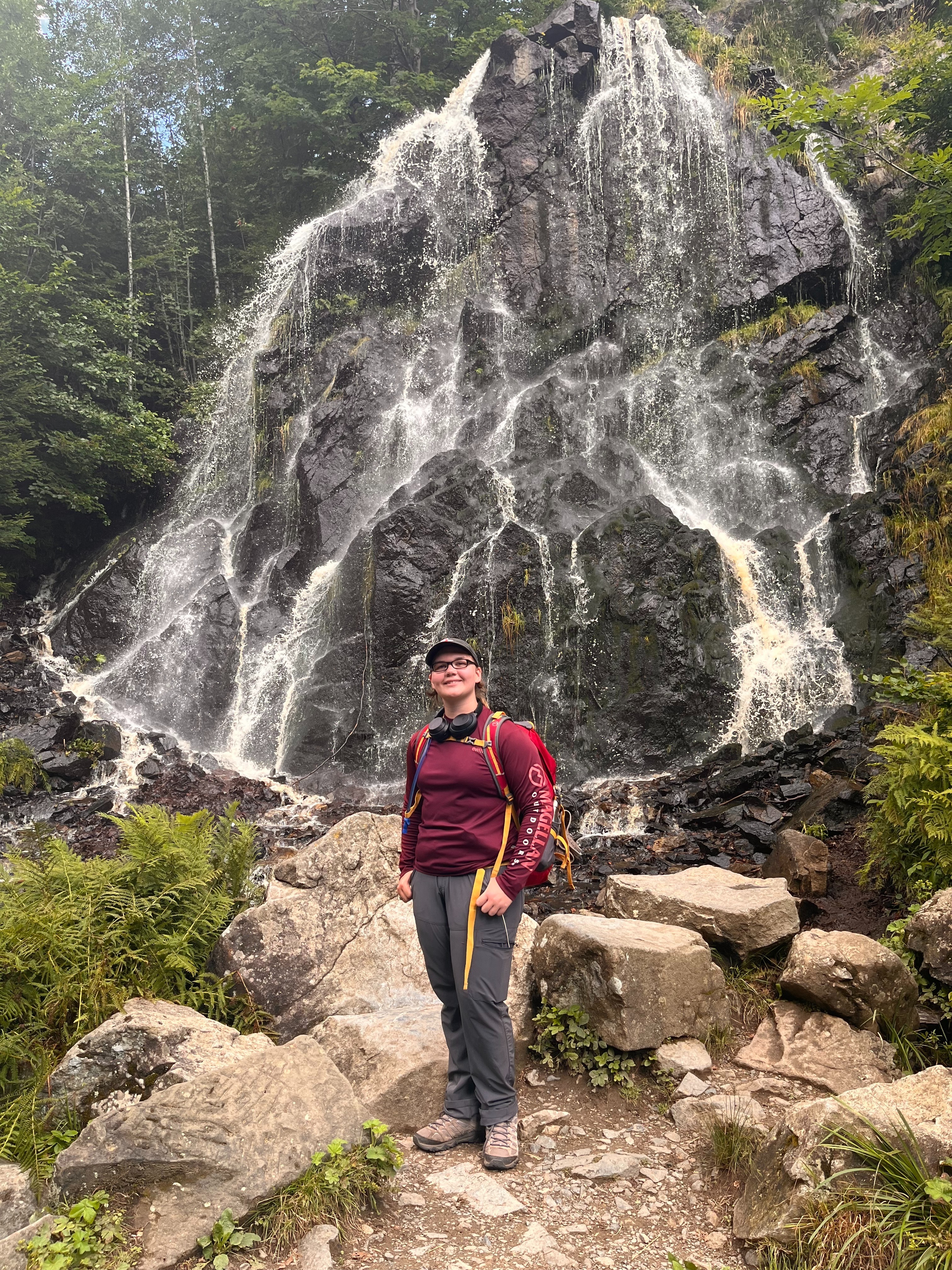 | 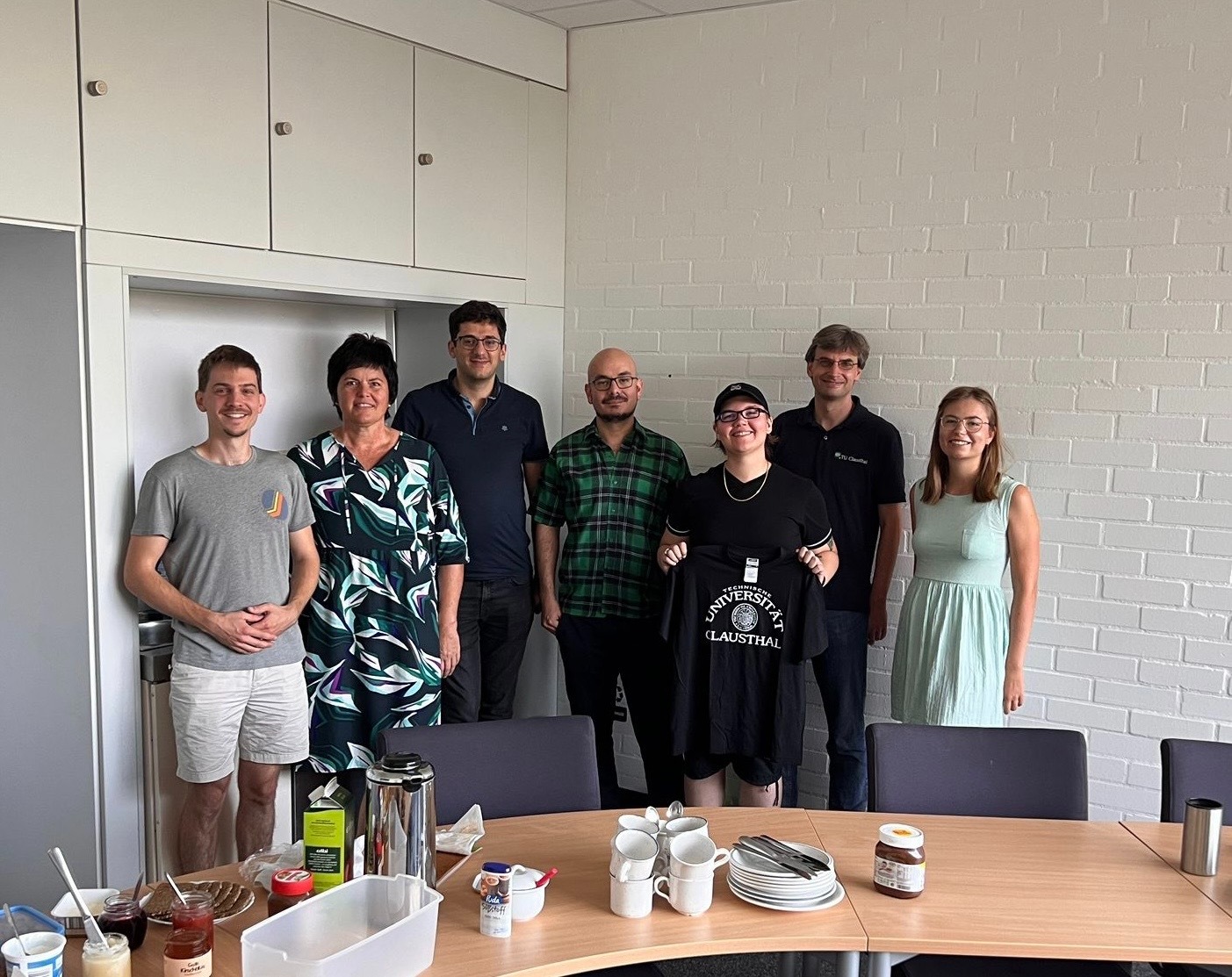 |
Overview of host organization, about internship project, and contributions made.
I worked with the Technical University of Clausthal in Lower Saxony near the Harz mountains, and it is well known for their engineering and research programs. I worked with the IEI group under Niels Neumann and focused primarily on communications for electronics. I built three different fiber optic transmitters, all of which will be used in the groups future projects for characterizing or debugging their own designs.
How did you use your MIT skills, and what new skills did you develop?
I had used some of my background in aerospace controls and electronics engineering to design the transmitters. I was also able to create a cohesive and organized final presentation because of Capstone courses that I took in my major. During my stay, I got to improve my German speaking skills. I learned a lot of new electronics skills as well, such as building custom PCBs in computer modeling software, SMD soldering, running electronics simulations, and learned more about transmitter signals and their performance metrics.
How did the experience support your academic/career goals?
I was struggling to figure out where I wanted to go after I graduate, and also what topic I wanted to work on. This experience has now allowed me to say with confidence that I want to come to Germany for professional work after I graduate, and that I want to work on physical electronics and RF communication systems in my future career.
Will you continue any work with your advisor/host in the future? Any patents, publications, or presentations resulting from your internship?
I created a final presentation of my work and findings that will be used in the future to help my team set-up their own experiments with my transmitters. I will not be continuing work outside of the summer, but may return for future research opportunities under a PhD program. This experience has become a fundamental part of my future decision to work in Germany and has bascially changed my future career path entirely (for the better). I don't think I have ever felt happier in a place than at Clausthal.
Mexico
Jonathan Beas '27 working at the Aerospace Lab at the Universidad Panamericanam in Mexico City.
MIT Rocket Team
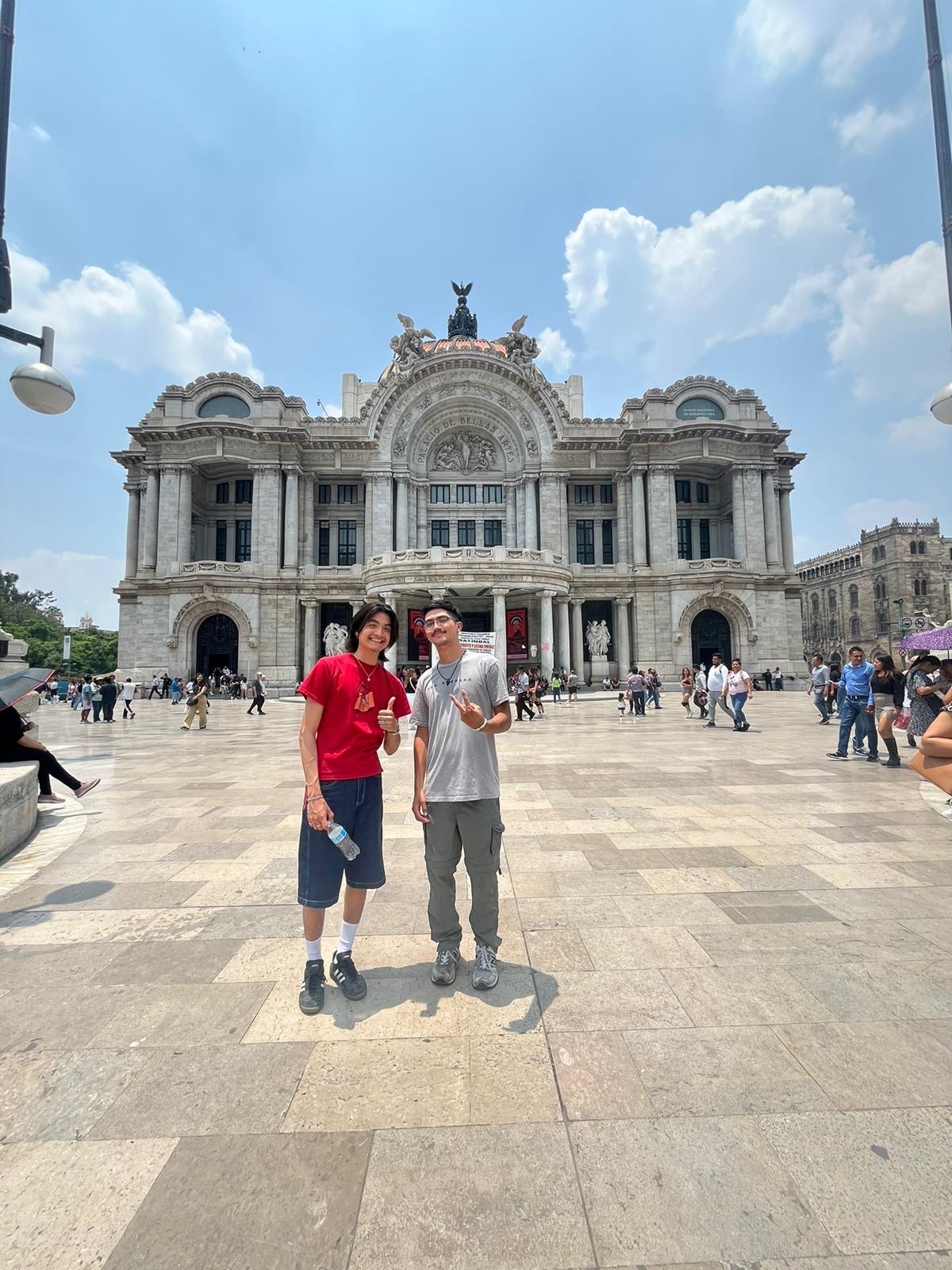 | 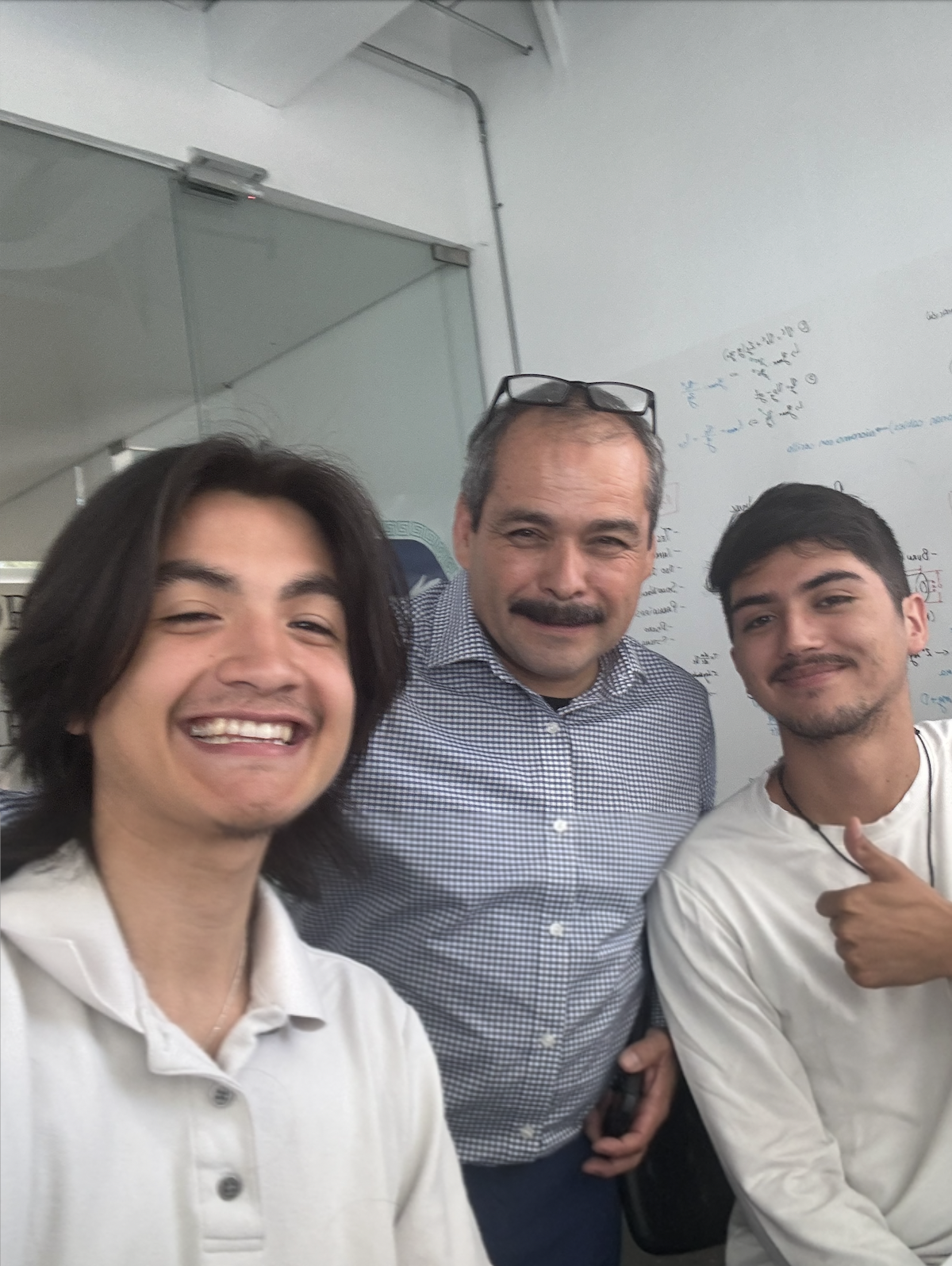 |
Overview of host organization, about internship project, and contributions made.
My project was to design a hybrid rocket engine that utilized both liquid and solid propellants. The purpose of the engine was to serve as the basis for a rocket that the university would use to compete in the Spaceport America Cup.
How did you use your MIT skills, and what new skills did you develop?
Much of the design work I was familiar with thanks to my position on MIT Rocket Team. This allowed me to comfortably work on this project without the assistance of others. Since I worked with only one other person on this project, I had to learn how to design aspects of the rocket engine that I hadn't designed before. Ultimately, the project made me a more confident rocket engineer.
How did the experience support your academic/career goals?
My participation in this internship made me a more confident rocket engineer and has propelled my success in MIT Rocket Team.
Will you continue any work with your advisor/host in the future? Any patents, publications, or presentations resulting from your internship?
Since we were only able to design the engine and not build/test it, I may help the university if they assembly a team to construct the rocket engine we designed. During my time there, I held two design reviews that were presentations over the design decisions of the engine.
What did you learn about yourself, and how did this experience influence your path at MIT and beyond?
In the workplace, I learned that I was capable of taking on a large engineering project even if I wasn't entirely comfortable from the start. I had to learn many skills along the course of my project which has given me the confidence to pursue even more challenging projects at MIT.
The Netherlands
Kevin Zimmer, a PhD candidate in the Dynamics, Infrastructure Networks, and Mobility (DINaMo) lab under the supervision of Professor Hamsa Balakrishnan, worked with the Strategy & Airport Planning team at the Schipol Airport in the Netherlands.
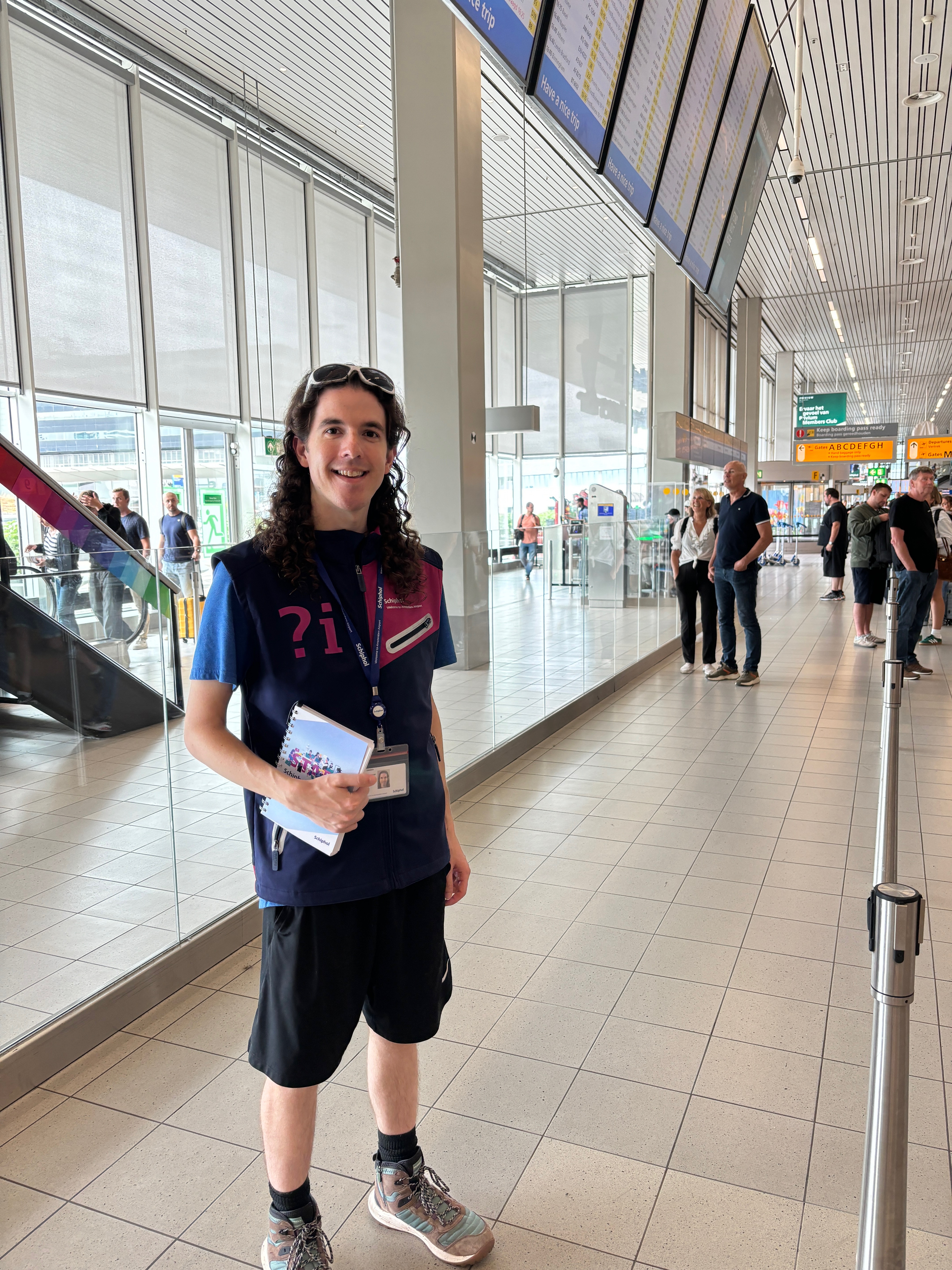 | 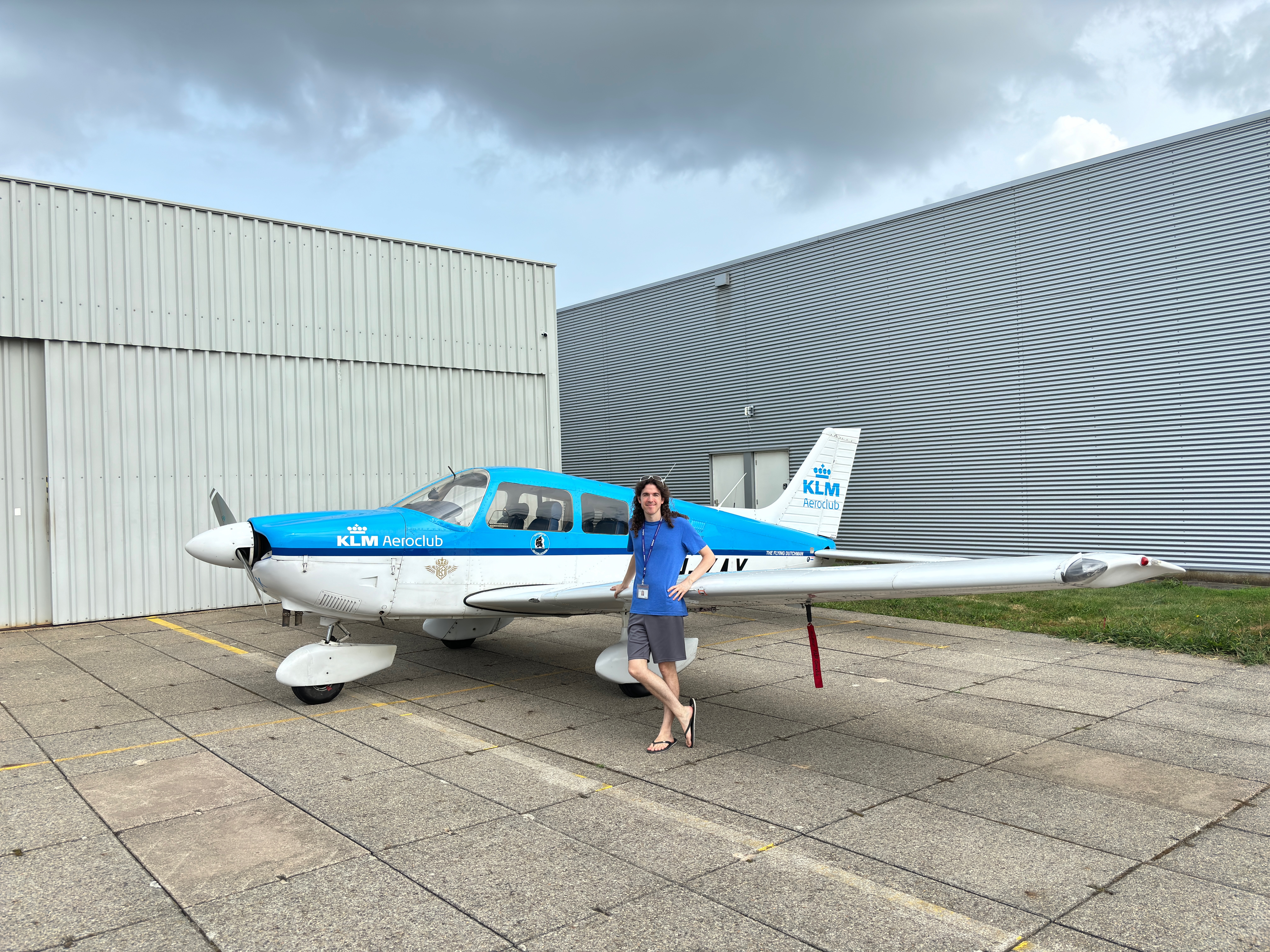 |
Overview of host organization, about internship project, and contributions made.
I worked for the Strategy & Airport Planning department at Schiphol Airport, the busiest airport in the Netherlands and the 3rd-busiest airport in Europe by passenger traffic. While a non-disclosure agreement precludes me from getting into specifics without the airport's permission, my work involved analyzing different operational challenges that the airport was facing and coming up plans to address these in the most optimal way, and thinking about how we could defend our plans to other airport stakeholders.
How did you use your MIT skills, and what new skills did you develop?
The knowledge from MIT's Airport Planning & Design course (16.781) was invaluable to me, and the strong foundation that this course gave me helped me to jump right in to the work I was doing at Schiphol without needing to spend time going over fundamental principles of airport operations as I already had a strong understanding of these. Through interactions with my colleagues, I learned first-hand how many of the class concepts I studied worked in practice.
How did the experience support your academic/career goals?
It gave me very useful knowledge and experience of how the theoretical concepts of airport planning & design that I've learned work in practice. In addition, I made good professional connections that will be valuable in my job search after I graduate.
Will you continue any work with your advisor/host in the future? Any patents, publications, or presentations resulting from your internship?
Yes. There are potentially 2 publications that will come from my internship.
What did you learn about yourself, and how did this experience influence your path at MIT and beyond?
Seeing the array of different topics and challenges in an airport environment that are available to solve and address, and how much fun I had doing it, reaffirmed my desire to work for an airport after graduation. And seeing how much better the work-life balance is at a European employer, and how much happier the workers seemed relative to their American counterparts, made me certain that I would like to work in Europe after I graduate.
